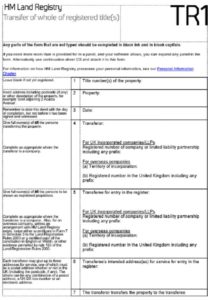Moving Home can be costly and stressful.

Moving Home
Summer is normally the most common time of year for moving home. Research uncovers the real expense of moving home over the UK, revealing glaring differences between towns. Research from Barclays Mortgages indicates the typical upfront cost of moving home in the UK, including estate agent, conveyancing and surveyor fees, land registry, EPC and SDLT, is £7,641, plus the buying price. On top of that, the average unforeseen costs can total £1,690, home movers are paying up £9,331 in costs.
The most frequent unexpected costs consist of purchasing new furniture that wasn’t the right size for the new home (43%), decorating (34%) and takeaways for the first few weeks after moving when the kitchen isn’t working correctly. (26%). The research also revealed that almost half (47 per cent) of homebuyers admitted to not being prepared for moving financially, underestimating the overall costs involved. This has resulted in 54 per cent admitting to needing to lean on family members for financial support to deal with the unexpected costs of moving – putting additional strain on a family.
Actual cost of moving home
Actual cost of moving home can be quite large here are some things we forget.
You have the keys, time to have spares cut.
Liverpool buyers will pay only £2,787 to move home, but £22,417 in London.
Estate agent fees as expected are the most of course, a seller in Oxford pays £5,783 but £1,780 in Glasgow.
HMRC removed stamp duty for 1st-time buyers on the first £300,000 of a purchase up to £500,000, this can actually make it cheaper for buyers looking for a lower priced property.
Stamp duty can equally cause a financial headache for those looking to move. In London, where the average house price is currently £482,200, housebuyers will pay an average of £14,110 in stamp duty.
Those looking to buy in the north, say in Liverpool, where the average house price is £123,000, may avoid the fee completely, with most properties below the current threshold of £125,000.
Also home insurance costs can be about £107 and a recommended survey, could be another £550. You can find a RICS surveyor in your area here
An EPC is a legal requirement which adds another £90 on average.
On top of these expenses, many home buyers are hit with other fees, like childcare, self-storage, decorating and pet-sitting fees.
Don’t forget to take into account
Van removals service, Transport between properties, fitting costs for new technology (eg Wi-Fi, TV etc), Costs for changing utility providers, furniture, bedding, kitchen utensils, Cleaning costs for rented properties, storage space, Post redirection costs, Childcare on the day you move, Parking costs, Decorators, Pet-sitting, Council tax costs.
If you require a mortgage for your new home, we are independent, free and whole of market. For more information click here









